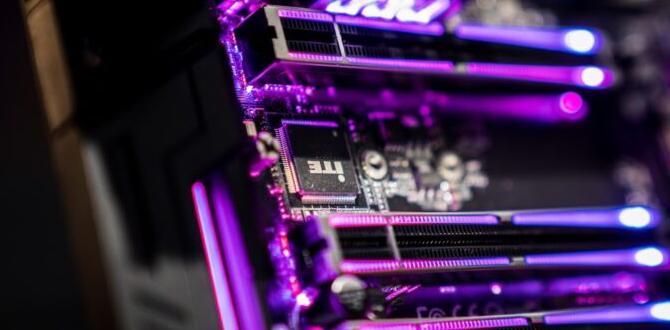Factors Affecting Motherboard Lifespan
When it comes to gaming PCs, the motherboard plays a crucial role in determining the overall performance and longevity of the system. Several factors can influence the lifespan of a motherboard, with two key aspects being the quality of components used and the frequency of use.
Quality of Components
The quality of components used in manufacturing the motherboard greatly impacts its lifespan. Higher quality components are more durable and less likely to fail prematurely, resulting in a longer-lasting motherboard.
Frequency of Use
The frequency at which a gaming PC is used can also affect the lifespan of the motherboard. Continuous use, especially for extended periods, can lead to wear and tear on the components, potentially shortening the motherboard’s lifespan.
Signs Indicating a Need for Replacement
There are several signs that may indicate a gaming PC motherboard needs replacement, such as system instability and failure to boot.
System Instability
If you experience frequent system crashes, freezes, or random restarts, it could be a sign that the motherboard is failing. Inconsistent performance and unexplained errors are red flags that should not be ignored.
Failure to Boot
A motherboard that fails to boot or shows no signs of powering up despite other components working properly may indicate a serious issue. This can be a clear indicator that the motherboard needs to be replaced.
Average Lifespan of a Gaming PC Motherboard
General Range
The average lifespan of a gaming PC motherboard can vary depending on usage and maintenance practices. On average, a well-maintained motherboard can last anywhere from 5 to 10 years.
Impact of Maintenance Practices
Regular maintenance, such as cleaning dust buildup, ensuring proper airflow, and updating drivers, can significantly extend the lifespan of a gaming PC motherboard. Neglecting maintenance can lead to premature failure of the motherboard.
Conclusion
In conclusion, the lifespan of a gaming PC motherboard is influenced by factors such as the quality of components, frequency of use, and maintenance practices. Recognizing the signs of motherboard failure and taking proactive steps to maintain your system can help prolong its lifespan and ensure optimal performance.
FAQs
1. How often should I replace a motherboard in a gaming PC?
It is recommended to replace a gaming PC motherboard every 5 to 10 years, depending on usage and maintenance practices.
2. Can upgrading components extend the lifespan of a motherboard?
Upgrading components such as RAM or storage can enhance the performance of a gaming PC but may not directly impact the lifespan of the motherboard.
3. What are some tips for maintaining a gaming PC motherboard?
Regularly cleaning dust buildup, ensuring proper ventilation, and keeping drivers updated are essential for maintaining a gaming PC motherboard.
4. Are there warning signs that indicate a motherboard needs replacement?
Yes, warning signs such as system instability, failure to boot, or unexplained errors can indicate a failing motherboard that may need replacement.
5. How can I prolong the lifespan of my gaming PC motherboard?
By following good maintenance practices, avoiding overclocking, and ensuring proper cooling, you can help prolong the lifespan of your gaming PC motherboard.
